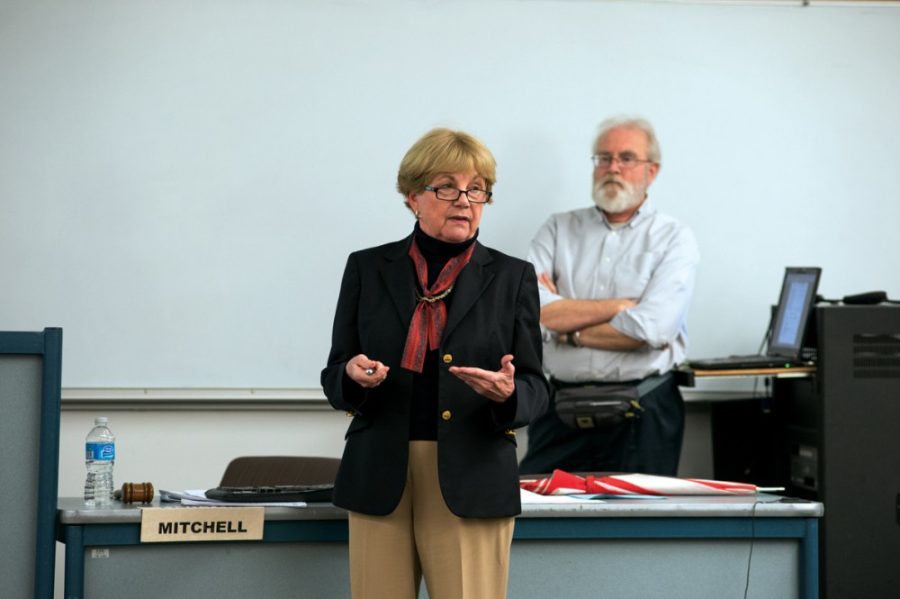Faculty Senate members approved an amended version of a proposal that will implement new guidelines for reorganizing and merging academic units at the UA on Monday.
After rewording and amending the proposal in the previous two meetings, the senate passed a process for combining departments or schools at the university that requires those who propose a merger of departments, colleges or schools to discuss the proposal with the heads, deans or provosts and non-administrative faculty of the affected parties. A selected planning committee will also work with members of the Faculty Senate.
The committee will continuously receive feedback from members of affected parties as it analyzes the impact of merging. The committee will present a draft and hold a question and answer session before submitting a final plan to be voted on by affected faculty who are eligible to vote.
A final plan will then move to the Faculty Senate for review, before UA President Ann Weaver Hart makes a decision on the proposal.
A discussion item regarding the university’s grievance policy intended to be voted on was tabled at the meeting. The university’s grievance policy calls for tenured professors who have been recommended for dismissal or suspension without pay to go through a process to appeal the suspension or dismissal. The university’s Committee on Academic Freedom and Tenure holds hearings for faculty members who wish to go through an appeal process.
While CAFT doesn’t make final decisions on grievance cases, it does make recommendations to Hart.
Patricia Hoyer, former chair of CAFT, stood before the Faculty Senate asking them to vote for two gate-keeping steps before a grievance case gets a formal hearing.
The proposal to amend the committee’s bylaws suggested the implementation of a Grievance Clearinghouse Committee to review and decide whether the case should be heard by CAFT.
Once approved by the new committee, CAFT would meet with the faculty member informally and discuss whether a formal hearing is necessary. Hoyer said the committee proposed the changes due to the cost of hearings, not just the financial cost but also the emotional cost of the faculty member bringing the grievance and possible witnesses in the hearings.
“These hearings are extremely expensive,” Hoyer said. “So it’s really beneficial to cut down on the numbers.”
Sen. Laura McCammon said she was concerned about the proposal’s priorities and about CAFT’s focus money rather than faculty members’ rights.
Sen. Andrew Silverman said he didn’t understand why there’s a need for gatekeeping procedures if few cases get hearings, as CAFT only hears two cases a year on average.
Some senate members also argued the proposal would make it more difficult for faculty members to be fairly heard. Continuing disagreement led to Sen. Marlys Witte’s proposal to end the discussion and move on to voting on the new department merger process.
“We have to look at whether we want to create more obstacles for faculty to grieve,” Witte said. “So I would go against the change in policy.”









